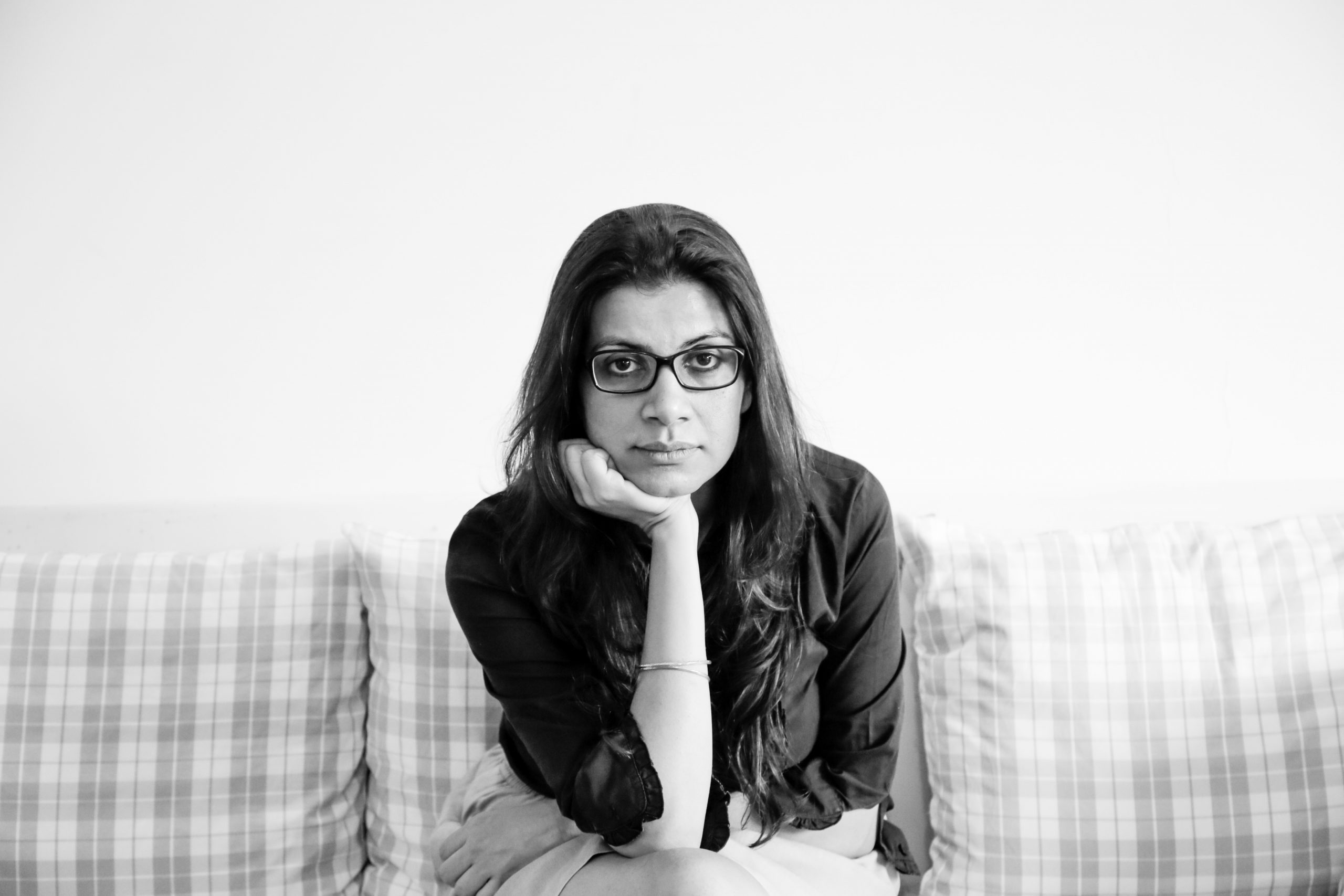
“I’m quite preoccupied with the complexity of the inner lives of women,” says Alankrita Shrivastava, Director of Lipstick Under My Burkha. From a fresh-faced graduate with a dream to make films on women finding themselves, Shrivastava is now a filmmaker to reckon with. From resounding applause at film festivals across the world to fighting for certification on home turf, the paradox of the two parallel journeys of Lipstick… isn’t lost on anyone. As the film finally primes to receive certification and hit the screens for Indian audiences, #DSSCSecretConversations gets chatting with the Director behind this ace production, decoding the makings of the Filmmaker that is Alankrita Shrivastava.
What prompted your foray into filmmaking?
I was always drawn to media and writing. My interest was sparked off at Welham Girls’ School where I saw my seniors in the Audio Visual class – they’d make small productions to be projected on a big screen on our annual founder’s day. That was very intriguing and I decided I wanted to do the same. And I did! It was quite a feeling.
Then I went on to pursue Journalism at Lady Shri Ram College (Delhi University) and did various internships to figure out which format I was drawn to the most. While I interned with NDTV, The Asian Age, Lintas (advertising agency), and with a documentary filmmaker, at the back of my mind I already knew I wanted to make films. It just takes a lot to acknowledge it to oneself as it’s a difficult path, but with each internship I would feel that ‘I’m enjoying this, but this is not it’. By the time I graduated, I was certain I wanted to make films, and I was already working on one by the time I was pursuing Master’s in Mass Communication!
Turning 30 and Lipstick Under My Burkha – both revolve around women taking charge of their own life. Was it a conscious decision to explore this theme through both your projects?
I’m quite preoccupied with women coming of age and finding themselves. I’m drawn to such stories and characters, and all of my work is also reflective of this theme. That’s my passion and I’m interested in making films that narrate the story I want to tell, and not just for the heck of it.
I’m not much of a film watcher, so my perspective is moulded by the books I read – Jane Austen, Virginia Woolf, Toni Morrison, the female voice in my work is inspired by the strong female voice in literature.

Image: Prakash Jha Productions; Still from Lipstick Under My Burkha
So what initiated you into exploring this theme of complexity of the inner lives of women?
I’ve always had this yearning for freedom and feel that I’m not fully free, that something is holding me back. So a desire for freedom whilst exploring this feeling of restriction is how characters emerge in my work. Despite having a relatively privileged existence, with no one telling me what to do and not to do, I’m still fighting for that little piece of freedom.
Through Lipstick Under My Burkha I wanted to explore characters who, unlike me, have external restrictions on their freedom. Characters who have not had the economic and educational privilege I’ve had, and have limitations on their life choices.

Unending praise across film festivals while the Indian censor board denies to certify your movie. What was your state of mind soaking in the two opposite situations simultaneously?
I was quite aghast at the reaction of the Censor Board, I realised that the freedom and gender equality guaranteed to us by the Indian constitution will only become real if we claim it. A legitimate government body denied certification to the film because it has a strong female voice – they’re practically telling 50 percent of the population to shut up. It was a wakeup call as the fact that an authority can say so, with such abandon and lack of accountability is very telling of the world we’re living in.
The concepts of censorship and democracy don’t go together, if adults have the right to vote they should have the right to watch the films they want to watch! The censor board is not representative of the adult Indian, this act was implemented in 1952 and does not apply in present times. The other thing that became clear was the hypocrisy – popular Indian cinema with item numbers, stereotypes of the virginal love, sacrificing mother, the martyr wife, etc. caters to the male gaze; I’m not asking to stop it but there should be a level playing field for the female perspective too. There was discrimination and I felt the Censor Board is systematically trying to protect the patriarchy and silence the voice of women. However, it was reassuring to see the issue resonate with people across the country and them debating on it, it shows that the audience wants to engage with interesting content.
Travelling with the film and receiving accolades was a good parallel as I needed that at the time the film was being attacked in its own country. All the love the film got gave me courage and hope, making me feel that I’m on the right path and it’s all going to be worth it. It was fantastic to see people across the world emotionally connect with Lipstick… even though the cultural context was completely different.
Now that the film has been granted certification, albeit cuts, do think the delay takes away from the film?
That we’ll know when the film comes out! But one can do without such a long procedure, it’s financially taxing for the producer, the government doesn’t pay for a 5 month delay in the film’s release. The only good outcome is the discussion and debate in the mainstream media, which has never happened before. For the first time people were understanding what I was saying and the media debated the skewed gender politics that exists vis–vis censorship in India, which was fruitful.
What’s next on your Plan of Action blueprint?
Lipstick… has become eligible for the Golden Globe Awards, so I’ll be working on campaigning for a nomination. I’m also working on an adaptation of a Virginia Woolf novel and a legal drama – both about women finding themselves! Hopefully, I would shoot one of these by the year end.
We get set to take our seats as Lipstick Under My Burkha reaches the theatres and bid Alankrita farewell as she gets set to strike gold at the Golden Globe Awards. Of course, not without spinning the signature DSSC Rapid Fire her way.
How would you describe yourself in one line?
Alankrita: I love life and living life on my own terms.
One pro-tip for those looking to set foot into the industry?
Alankrita: It is a test of patience and perseverance. The ability to endure struggle matters more than talent.
The movie you can keep watching on repeat forever?
Alankrita: There isn’t one.
Books or movies?
Alankrita: Books.
Last day on earth and you can watch only one movie – which would it be?
Alankrita: I would not watch a film. I would much rather drink some wine or coffee and stare at the sky, feeling grateful for the life I have lived.
Favourite perk of the job?
Alankrita: I get to dress as informally as I like and be unkempt and it’s totally cool.
The worst pitfall of the job?
Alankrita: The energy spent waiting.
This conversation is a part of the DSSC Secret Conversation Series, where we get candid with the ace industry disruptors who map its course one masterstroke at a time.
Disclaimer: The opinions expressed in this feature are those of the interviewee and do not necessarily reflect those of DSSC & its affiliates.
Featured Image Courtesy: Komal Gandhi

